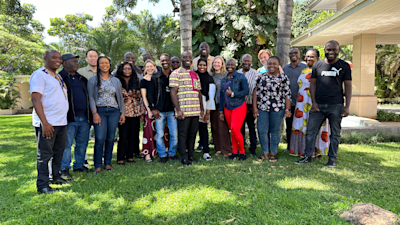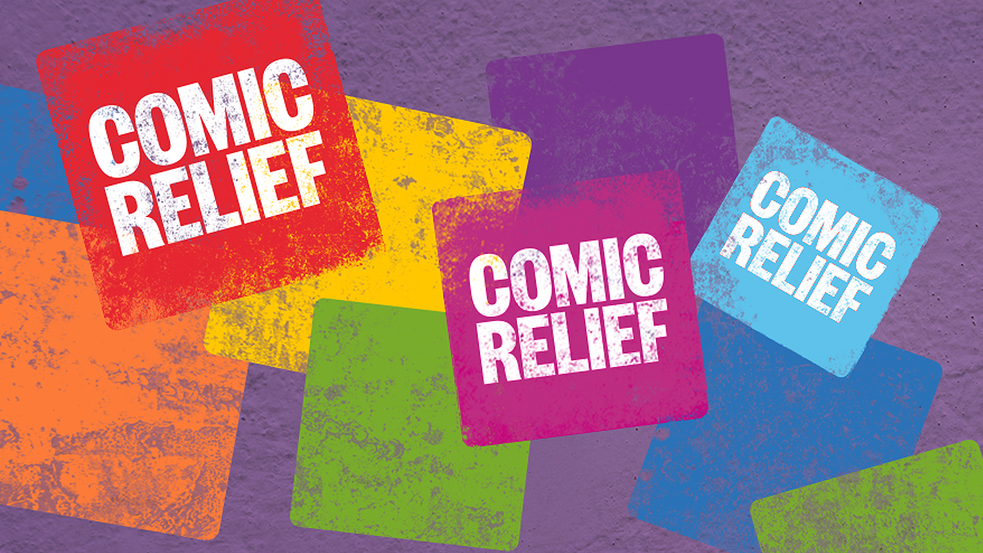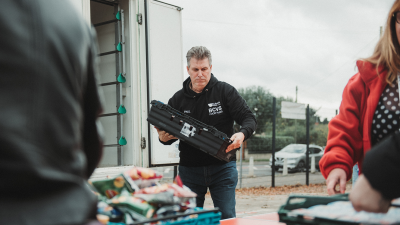
By Sue Wicks, Strategic Lead - Sport for Change, Comic Relief
After watching the Olympics from Rio, I wonder how many of us will decide to pull on a pair of trainers, pick up a tennis racket or put on a swimming costume? We know it’s unlikely we will become the next Jessica Ennis-Hill, Andy Murray or Tom Daley, yet watching elite sport has an immense power to inspire and motivate us. Outside of the professional arena, the power of sport can also be life changing.
At Comic Relief, we know that taking part in sport and physical activity is intrinsically a good thing. It brings health benefits as well as increasing self-confidence, self-esteem and team work. However we also know that sport can do more than this. Over the last 13 years, we have invested more than £30 million funding projects both in the UK and overseas which use sport as a tool for social change and have seen some remarkable programmes developed.
Sport can be used as a magnet to engage with hard to reach young people. We have funded organisations such as Street League in the UK and Fight for Peace internationally which work with young people who are not in education, employment and training, or who are involved in or on the edge of gangs. They use sport as a hook for young people and, with a mixture of sport and non-sport activities, improve their health, education and chances of employment so they can go on to reach their full potential.
Sport can be used as a platform for education and to teach life skills. Grassroots Soccer in South Africa, use football to deliver potential life-saving lessons such as HIV prevention. Vi-ability in the UK provides young people with skills in enterprise and employment through working with local sports clubs to help them become thriving, viable businesses.
Sport can be used to connect people of different ages and tackle the effects of dementia, depression and loneliness. Sporting Memories use photographs of sporting events as a reminiscence tool to help people living with dementia trigger conversations with carers and family members. This often leads those people into wanting to become more physically active too.
So is sport a silver bullet? Does it have the power to change the world? Not on its own, but sport is certainly a powerful vehicle for change. It is an enabler and it appeals to groups of people that other interventions don’t, but it is the programme of activities that sit around the sport that are equally, if not more important, than the sport itself.
The Sport for Change sector is relatively new but momentum is building. The Sustainable Development Goals (SDGs) recognise sport as a potential tool for development - this is the first time it has been referenced in such a context and ultimately gives global recognition to the enormous value sport can bring to development work in communities across the world.
In the UK, the 2015 Department for Culture, Media & Sport strategy ‘Sporting Future; a new strategy for an active nation’ states that ‘we will be bolder in harnessing the potential of sport for social good...it is no longer merely about how many people take part, but rather how sport can have a meaningful and measurable impact on improving people’s lives’. A coalition of organisations is working collectively in the UK to provide the evidence for this.
Sport for Change will remain a key priority under Comic Relief’s new grant making strategy, launched earlier this year. Specific initiatives with sport as the catalyst will continue to drive positive change to help us achieve our vision of a ‘just world free from poverty’ in which everyone is safe, healthy, educated and empowered. To use sport as an effective tool for social change, bringing sector leaders together and sharing knowledge to design new programmes is key.
Another key strand of our new strategy is to ensure people are at the heart of our approach. We are committed to working in partnership with people and organisations to co-create initiatives and help communities find their own solutions to the problems they face. Recently Comic Relief held a consultation event with leading voices from the Sport for Change and women and girls sectors. We discussed how sport can play a role in helping women and girls in the UK tackle the challenges they face and break down the barriers that are stopping them from fulfilling their potential.
One major theme that emerged was the issue of gender stereotyping and how many women and girls find their aspirations - be that sporting or not - quashed by negative attitudes and criticism. Sport England’s This Girl Can campaign has done a brilliant job in trying to redress the balance, but the consensus of the meeting was that more needs to be done. There are several great Sport for Change initiatives which focus on empowering women, developing their skills and promoting leadership and Comic Relief will build on these in a new programme to be launched this autumn.
Across the globe we will also support organisations which work in the poorest communities with street children and other with limited life opportunities. We will also work with organisations which increase opportunities for people with disabilities through sport. Through this work, there is a chance that a future Olympic champion may be discovered, but what is more certain is that thousands of young people will have brighter futures due to their involvement in sport. One thing we know for sure is that sport can and does change lives, on and off the field.
Find out more(opens in new window) about our approach to Sport for Change.


